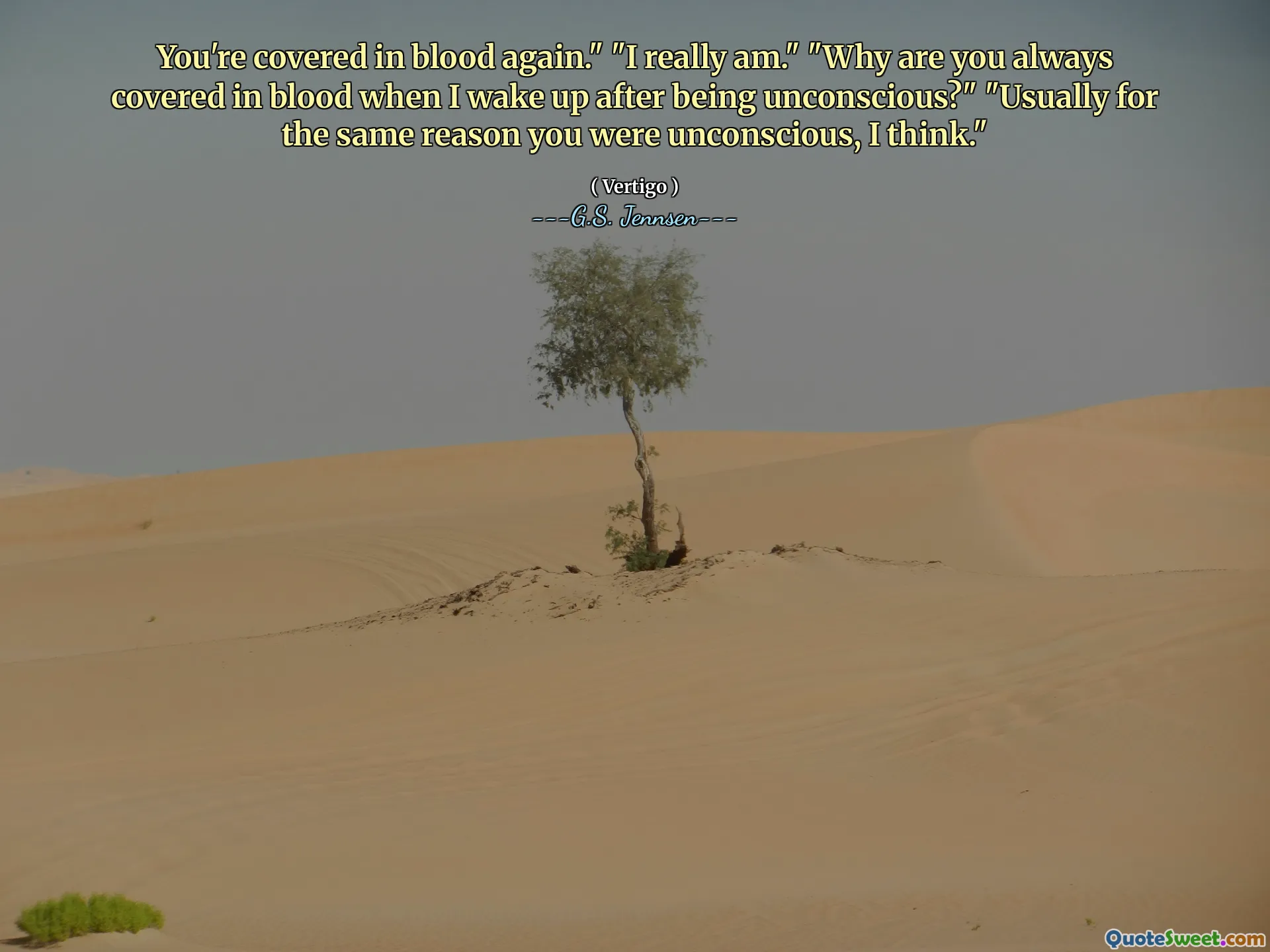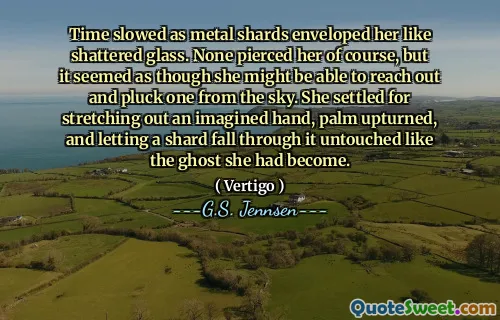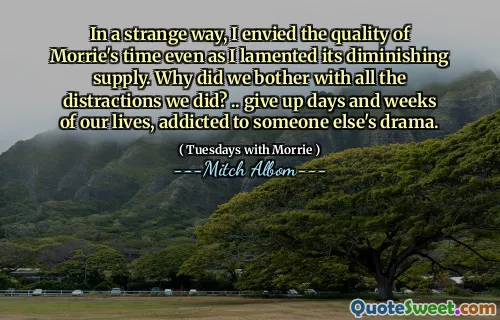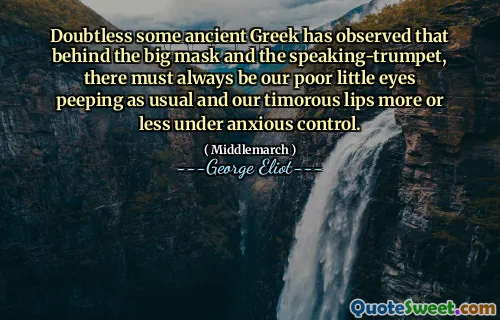
You're covered in blood again." "I really am." "Why are you always covered in blood when I wake up after being unconscious?" "Usually for the same reason you were unconscious, I think."
This exchange hints at a relationship marked by trauma, mutual dependence, and perhaps a hint of dark humor or grim reality. The repeated imagery of blood suggests violence, danger, or some form of peril that both characters frequently encounter. The fact that one character is consistently found unconscious and the other covered in blood indicates a cyclical pattern, implying a possibly dangerous lifestyle or ongoing conflict. It also raises questions about their environment and circumstances—whether they are involved in battles, or perhaps living through a world filled with chaos where survival is precarious.
The dialogue offers a glimpse into their complex dynamic. The casual tone—discussing blood and unconsciousness as if they’re normal occurrences—may signify resignation or a hardened acceptance of their reality. It speaks to resilience—if they can joke about such grim things, it suggests both a level of desensitization and a closeness that makes these experiences shared secrets rather than traumas.
From a narrative perspective, it provokes curiosity about the backstory—what led to this circumstances, and what future challenges they might face. The mention of blood and unconsciousness also evokes themes of vulnerability and strength intertwined; despite the dangers they face, there is a sense of camaraderie and understanding. It’s reflective of the human conditions of facing adversity and the ways people cope through humor or companionship even amidst severe adversity.
Overall, it’s a raw portrayal of survival, resilience, and the intimate bonds forged in harsh circumstances, capturing a vivid slice of their ongoing story.




